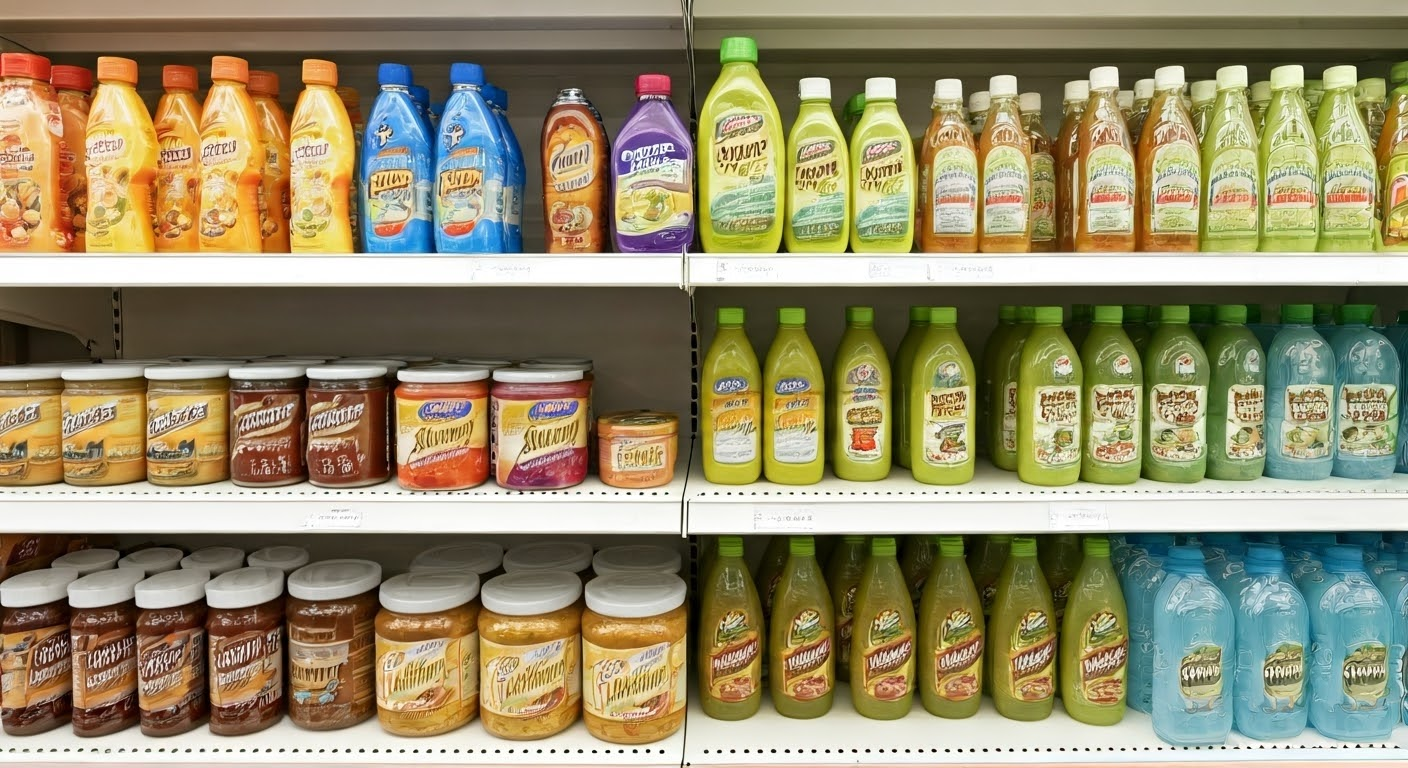
The fast-moving consumer goods (FMCG) sector is very important in our everyday lives. It includes a wide range of consumer goods that we depend on. This covers everything from the food we eat to the toiletries we use. These products have a short shelf life, low cost, and are always in high demand. Because people always need these items, the industry must be quick and adjust to changing market trends and consumer behaviors.
The personal care section in the FMCG industry is doing well. It is busy and has a lot of competition. From toothpaste to shampoo, these daily items are in a smart market. This market is changing based on what people want. In this fast-paced world, having good information about business is not just nice; it is essential to survive. And this information will be made visible and accessible with the help of dashboards made using business intelligence that is BI.

Here are five important facts that show why we should use BI and the great benefits it offers.
Global trends show that the care market is growing fast. It is likely to hit $750 billion by 2027. This means it will grow by 5.5% each year. Many people want products that are organic, sustainable, and healthy. This changes how companies offer their products. New markets are also very important for sales.
However, this growth comes with challenges:
Solution– BI helps companies move ahead by providing key information about changes in the market. A global brand can use BI tools to look at sales data from different regions. They can find new markets and improve their product options based on this data.
Key Takeaway: Growth without intelligence is like driving blindfolded—BI removes the blindfold, ensuring FMCG companies steer towards profitability.
The days when a simple TV ad could ensure sales are over. Now, customers are smart. They know how to use digital tools and they want to get good value.
Solution- To understand these complex behaviors, you need more than regular market research. BI tools assist large FMCG companies to:
A BI dashboard might show that more people in Southeast Asia like sulfate-free shampoos. This could lead a brand to create products just for them.
Key Takeaway: Personalization is the future, and BI is the map that guides FMCG brands to the hearts (and carts) of their consumers.
Managing a supply chain for care products means handling many SKUs and several suppliers. Demand is always changing too. On top of that, there are sustainability goals to meet, which makes it harder.
Recent data shows how important the supply chain is.
BI solutions offer clarity amidst chaos by:
Key Takeaway: A streamlined supply chain isn’t just efficient; it’s the backbone of customer satisfaction, and BI ensures every link in the chain is optimized.
Technology has changed the personal care industry in surprising ways. Brands are using new ideas, like AI and IoT, to improve. Here are some interesting facts:
Solution- BI acts as the main hub. It collects data from many sources. For example, a busy consumer brand can track sales instantly with IoT sensors in stores. This data goes into BI tools, allowing them to change marketing plans quickly.
Key Takeaway: In a tech-driven world, BI is the bridge between innovation and actionable outcomes.
Sustainability is not just a trend anymore; it is very important. FMCG brands feel a lot of stress. They have to use eco-friendly methods, cut down waste and follow strict guidelines.
Solution– BI helps FMCG companies meet these demands by:
A BI solution can show that using biodegradable packaging in some areas can increase sales and meet government regulations.
Key Takeaway: Sustainability isn’t just good ethics—it’s good business, and BI is the compass guiding FMCG brands toward a greener future.
As a company working on providing BI solutions to FMCG industry, Diacto Technologies knows the strong demands of the FMCG personal care industry. We have smart BI dashboards that provide:
We use our skills to change data into useful information. This helps brands make better choices, improve their plans, and stay ahead of their rivals.
Final Thoughts: Why the Future Belongs to BI
The FMCG care market has both chances and challenges. It is important to understand how people think. We also need to better supply chains and focus on sustainability. The challenges change just like the products we see.
Business Intelligence is a useful tool. It takes confusion and changes it into clear information. Companies that use it see big benefits. They can connect better with customers, have smoother operations, and gain a strong edge over others.
Personal care products in FMCG need support and direction provided by data. Will your brand take up this challenge with BI?
At Diacto, we feel that changing data into stories helps with choices. Let’s make your story together. Contact us today!
Follow us on LinkedIn for more such insights.
Source credits: all the facts and figures are picked up from Google
The FMCG sector is growing quickly because of several reasons. There is a rising need for convenience. The global population is increasing, and consumer behavior is changing. These things all lead to a greater need for FMCG products. Also, strong competition pushes companies to be creative. They always want to capture more market share by using smart marketing strategies and offering attractive products.
Technology is changing the FMCG world. It helps companies improve their operations and build stronger ties with consumers. Data analytics makes market research more accurate and helps businesses understand consumer preferences better. This use of data also applies to supply chain management. It allows FMCG companies to improve logistics, predict demand, and boost overall efficiency.
Sustainability is very important in the FMCG market today. This change comes from people becoming more aware and wanting eco-friendly habits. The industry uses many natural resources. So, it is essential to focus on good ways to get materials and make products responsibly. Using sustainable practices, like eco-friendly packaging and less waste, matches what consumers value now. It helps create a more ethical and eco-conscious industry.